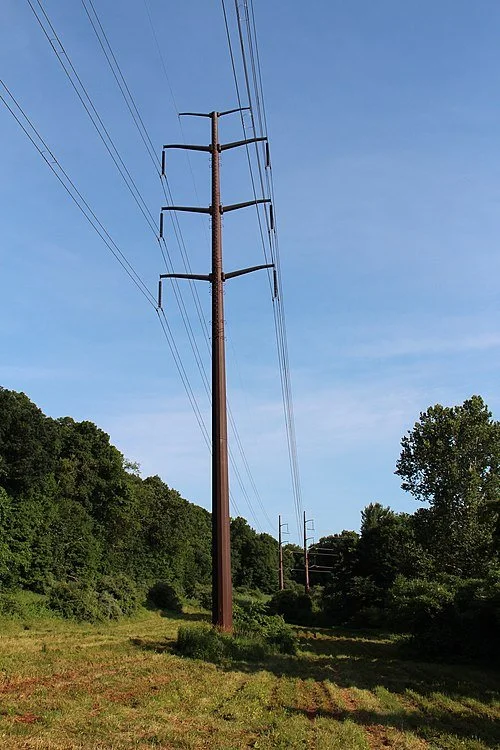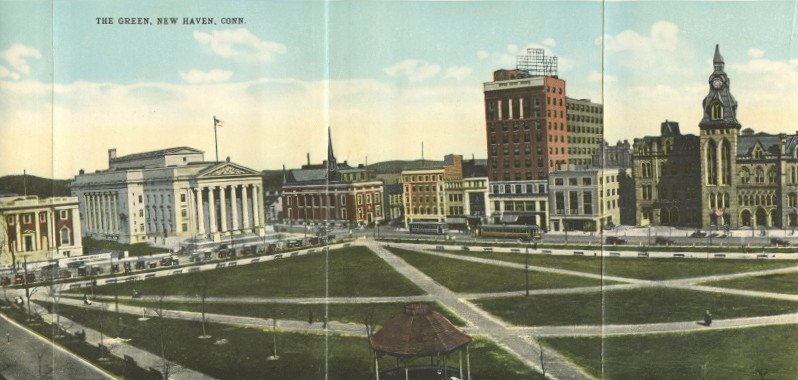Chris Powell: Welfare hides in Conn. Electricity Bills; toilets on the Green
Electricity transmission line in Brookfield, Conn.
MANCHESTER, Conn.
Why should Connecticut's electricity grid be incorporated into the state's welfare system? Why are electricity users in the state who pay their own electric bills being charged extra to subsidize discounts for electricity used by poor people who don't pay? Why aren't those subsidies financed by general taxation?
Those questions were prompted by a recent report from Connecticut Inside Investigator's Marc E. Fitch, who discovered that the Low-Income Discount Rate Program of the state Public Utilities Regulatory Authority is giving $137 million in electricity discounts ranging from 10 to 50% to low-income electricity users. They are automatically enrolled for the discounts through the authority's data-sharing arrangement with the state Social Services Department.
Everyone classified by the welfare department as being poor in one respect or another is identified to the state's major electricity distributors, Eversource and United Illuminating, and then the companies are required to reduce bills accordingly.
The discounts are recovered through higher rates to everyone else.
This exploitation of electricity customers has been going on in Connecticut in various forms for a long time. The Low-Income Discount Rate Program, begun last year, is just the most extreme form, since, predictably enough, it has turned out to cost many millions more than estimated. The program is one reason why the “public benefits" surcharges on electric bills are so high.
Republican state legislators argue that welfare expenses should be transferred out of electricity bills and into the state budget. Democratic legislators, who hold a large majority in the General Assembly, oppose such transparency but have never clearly explained why.
That's why the questions reiterated above remain compelling even though their answers can be inferred. Democratic legislators like hiding taxes in electricity bills, for then the public blames the electric companies for high electricity prices instead of the mistaken and deceptive government policies that actually have driven them up.
TOILETS ON THE GREEN: Homeless people and their political advocates gathered at a school in New Haven the other day to berate Mayor Justin Elicker for not yet having turned the city's downtown green into a homeless encampment complete with plenty of sparkling-clean portable toilets.
The mayor was at the school to discuss his city budget proposal but dutifully explained that the portable toilets already installed on the green are hard to maintain because people sometimes use them for prostitution, drug injections, and disposal of hypodermic needles and other trash. Elicker noted that toilets in city libraries are free for the homeless to use. But maybe those toilets are not as suitable for everyone because libraries expect decent conduct.
Nevertheless, the homeless people and their advocates urged the mayor to add $500,000 to his budget for more portable toilets on the green.
Homelessness is a worsening problem in Connecticut. Part of it is the state's shortage of housing, the result of long-negligent state government policy, and part of it is the mental illness of the homeless themselves.
But Mayor Elicker isn't responsible for the problem. To the contrary, his administration is greatly facilitating housing construction in the city. Meanwhile Governor Lamont's administration plans a substantial increase in “supportive housing" for people recovering from addiction.
One of the homeless advocates berating the mayor the other day asked why the city doesn't get more money to spend by taxing Yale University, which owns much tax-exempt property in New Haven. The mayor said he'd like to tax Yale but the city doesn't have that authority. He might have added that state government, controlled by members of his party, has the power to tax Yale but for now has left the university as one of the few things in Connecticut that isn't taxed, and that the homeless might go to the state Capitol and ask about that.
Better still, the mayor also might have asked the homeless what they plan to do to help themselves and the city. They didn't volunteer to keep the portable toilets clean and as usual seemed to think that the world, or at least the city, owes them a living.
Chris Powell has written about Connecticut government and politics for many years (CPowell@cox.net).
A few years ago: Part of the New Haven Green, without homeless people or portable toilets.
Part of a panoramic view of The New Haven Green in a “souvenir folder" mailed in 1919. The New Haven County Courthouse is the building with six pillars, left of center.


